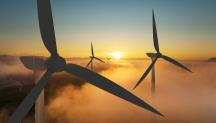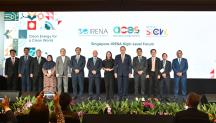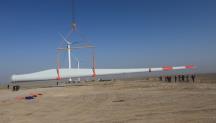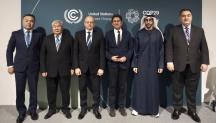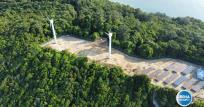
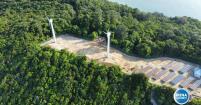
IRENA Maps Pathway for ASEAN to Lead Net-Zero Race
Newsletter
By 2050, the economic and demographic expansion in Southeast Asia will cause a roughly 2.5-fold rise in energy demand. The amount of CO2 emissions associated with energy would double along with this growth. Recognising the dangers, the Association of Southeast Asian Nations (ASEAN) member states have set decarbonisation targets and pledged to reduce emissions in their nationally determined contributions (NDCs). At the COP26 in Glasgow last year, most ASEAN member states reaffirmed their decarbonisation commitments, and currently, nine out of 10 governments have pledged to achieve net zero targets by 2050.
Since achieving these goals depends heavily on a successful transition to renewable energy sources, IRENA has been working with the ASEAN members to map out a course for such a transition. On 15 September, the Agency released the second edition of the Renewable Energy Outlook for ASEAN: Towards a Regional Energy Transition, and the Indonesia Energy Transition Outlook a month later. The reports lay out a comprehensive, renewables-focused, long-term energy roadmap for the transition to a cleaner and more sustainable energy system in the region.
Aimed at presenting findings from these reports as well as early insights from the upcoming Malaysia Energy Transition Outlook, on 14 November, IRENA and the Danish government organised an event titled, “Renewable Energy Transitions in the ASEAN Region” at COP27.
Roland Roesch, Acting Director, Innovation and Technology Centre, IRENA, thanked the Danish government for their support in the report preparation and the Egyptian government for hosting COP27, stating that the reports will greatly assist ASEAN countries in meeting their net zero goals.
“ASEAN members still depend heavily on fossil fuels, accounting for around 85 per cent of primary energy demand in 2021. IRENA’s 1.5-Scenario will see a big push towards electrification, renewables, and energy efficiency. The renewable share can approach two-thirds of energy consumption,” he added.
Danish Climate Ambassador Tomas Anker Christensen stressed the need to discuss solutions as well as the necessity of establishing the legal and policy frameworks needed to bring about the energy transition. Emphasising Denmark's own efforts to move toward energy transition, he said, "We bring this experience to help our ASEAN allies.”
Following presentations from IRENA Programme Officer Nicholas Wagner and Danish Energy Agency’s Chief Advisor Aisma Virna on the energy transition in ASEAN countries, a panel discussion was held.
Highlighting the Malaysian government commitment to addressing climate change, Dato’ Mohamad Razif bin Abd Mubin, Deputy Secretary General for Energy, Ministry of Energy and Natural Resources, Malaysia, said his government is focused on the energy sector and is working towards building interconnectedness with neighbours.
Scaling up the adoption of renewables can be challenging for ASEAN nations, according to Daniel Gaspar, Deputy Director of the Pacific Northwest National Laboratory, but technology can pave the way and benefit all parties in the long run.
The Danish Energy Agency's Ulrik Eversbusch, Director of Global Cooperation, emphasised the value of derisking, long-term planning, and the necessity for investor trust.
In addition to the ASEAN session, IRENA organised a number of programmes at COP27 on 14 November that were centered on the energy transition. This demonstrates IRENA's determination to increase conversation on the energy transition and establishes the tone for the high-level "Energy Action Event with the Marrakech Partnership for Global Climate Action Energy Thematic Group" on 15 November. From 15-16 November, the G20 summit will meet in Bali, Indonesia and energy security is likely to be a high priority.
